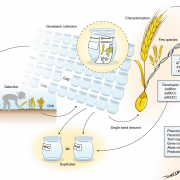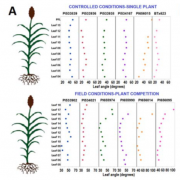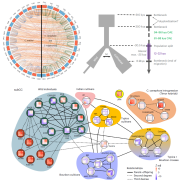Review: Overview of attitudes towards genetically engineered food ($) (Annu. Rev. Nutrition)
 The appearance and growing importance of genetically engineered (GE) food, and the extensive resistance to it, raises many issues specific to this technology. Scott et al. analyze the bases of lay opposition to GE food and evidence for how attitudes change towards this topic. The authors indicate that a lot of people are against GE food mainly because of the perceived risks and benefits, (lack of) knowledge, (lack of) trust in science, and (lack of) trust in institutions. Additionally, moral values, contagion intuitions (e.g., GE tomatoes incorporating a frost-resistance gene from the Arctic char fish nicknamed as “fish tomatoes”), political aspects and media and other resources affect their attitudes. The authors explore if any changes in attitudes toward genetic engineering can be observed by providing more information about genetic engineering and its risks and benefits. Interestingly, they found providing information does not generally increase acceptance but even can increase negative attitudes. In many cases, factual arguments are not effective, indicating a strong influence of moral or other intuitions. The authors conclude by highlighting that these reactions are based on Western developed world points of view. Taking into account that 80% of the human population lives outside of the developed world, attitudes based on their needs and opinions toward food and nature have to receive much more attention in the near future. (Summary by Jessica Carolina Seis Muñoz and Maria Julissa Ek-Ramos) Annu. Rev. Nutrition. 10.1146/annurev-nutr-071715-051223.
The appearance and growing importance of genetically engineered (GE) food, and the extensive resistance to it, raises many issues specific to this technology. Scott et al. analyze the bases of lay opposition to GE food and evidence for how attitudes change towards this topic. The authors indicate that a lot of people are against GE food mainly because of the perceived risks and benefits, (lack of) knowledge, (lack of) trust in science, and (lack of) trust in institutions. Additionally, moral values, contagion intuitions (e.g., GE tomatoes incorporating a frost-resistance gene from the Arctic char fish nicknamed as “fish tomatoes”), political aspects and media and other resources affect their attitudes. The authors explore if any changes in attitudes toward genetic engineering can be observed by providing more information about genetic engineering and its risks and benefits. Interestingly, they found providing information does not generally increase acceptance but even can increase negative attitudes. In many cases, factual arguments are not effective, indicating a strong influence of moral or other intuitions. The authors conclude by highlighting that these reactions are based on Western developed world points of view. Taking into account that 80% of the human population lives outside of the developed world, attitudes based on their needs and opinions toward food and nature have to receive much more attention in the near future. (Summary by Jessica Carolina Seis Muñoz and Maria Julissa Ek-Ramos) Annu. Rev. Nutrition. 10.1146/annurev-nutr-071715-051223.









